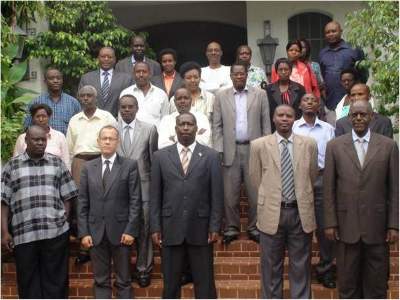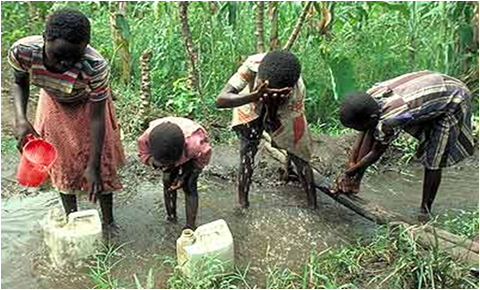In this perspective, Rwanda and Burundi through the GWP Country Water Partnerships are supporting the implementation of a transboundary project in Bugesera Basin to improve water security and climate resilience in the areas. The Bugesera Basins vulnerable areas to climate change idefied as a priority in both the Burundi and Rwanda NAPAs.
The Consultation in Burundi was on 16 February 2012 while the Rwanda consultation meeting was held on 30th January 2012 in Kigali.
- Geomorphological nature: Bugesera is part of Kagera, Lake Victoria AND whole Nile River Basin, comprising a number of shared aquatic ecosystems for Rwanda and Burundi;
- Bugesera has been the most vulnerable area to Climate Change effects due to its historical background;
- The Bugesera Project comes to support the two countries’ initiatives relating to CC resilience programmes ( CC adaptation initiatives in Rwanda ) and, availability of IWRM Plan in Burundi, among other things,
- Bugesera sub basin has been subjected to many Studies conducted by various organizations ( Kagera TIWRMP, Kagera Basin Organisation and NAPA reports, etc) These studies have shown some investment opportunities but also the challenges in Bugesera sub region being the biggeest part of Kagera River Basin,
To kick start the WACDEP in Bugesera, Rwanda and Burundi Water Partnership to organized national consultative meetings of stakeholders in the areas to discuss:
- the adaptation measures to improve the resilience of the local communities in Bugesera Sub Basin to the increasing threat of climate change and variability to water resources and their capacity to meet the these challenges;
- The equitable and sustainable use, as well as promote integrated management and development, of national and shared water resources in the Region ;
- the modalities of implementing the proposed Bugesera project as well as strategic plan and roadmap for its implementation;
- How the project can be integrated with other existing projects in the local area to ensure its ownership and sustainability.
Challenges in Bugesera
Non Climatic stressors
- Overpopulation: imbalance of water demand vs water supply, encroachment on natural resources
- Deforestation
- Unplanned settlement
- Inappropriate land use and agricultural practices
- Increasing water pollution and contamination due to invasive weeds, intensive soil erosion, sedimentation and poor sanitation facilities;
Climatic stressors
- Temperature increase, Rain falls decrease
- Droughts, Floods
- Environmental degradation

Burundi Group Photo with the honorable Minister of Water Environment, Land Management and Urban Planning in the center to his right there is FAO Country Director
Progress to date
- Inventory and mapping of Stakeholders who will be involved in implementation of the project :government institutions ( Water, agriculture, forestry, energy, environment, natural resources) etc, Local administrations ,International NGOs, Local NGOs, CBOs, Women Organizations, Youth organizations
- Country consultative workshop in Kigali and Bujumbura were conducted and the following recommendations were made:
During the workshops, participants from public, private and CSO’s have deliberately discussed on the project and came up with the following recommendations:
- Type of project and activities to be implemented on ground,
- Identification of key project stakeholders/beneficiaries: their roles, responsibilities and contribution in the course of the project implementation,
- Project’s Implementation modalities:management, implementation approach, involvement of stakeholders, timeframe, etc…) at local level. Who will be responsible ? of the day-to-day management, monitoring and evaluation of the project activities, and duration of the project);
- Sustainability and Ownership of Project Activities by the local administration and communities ( during and after the project); Have a Project coordination unit
- Recognition of the role of women and youth in the implementation of the project
- Strategy for the mobilization of additional funds: funding mechanism
- Consideration of the transboundary nature of the project :benefit sharing by the riparian communities ( Rwanda and Burundi)



For more information, see stakeholder consultations workshops.
